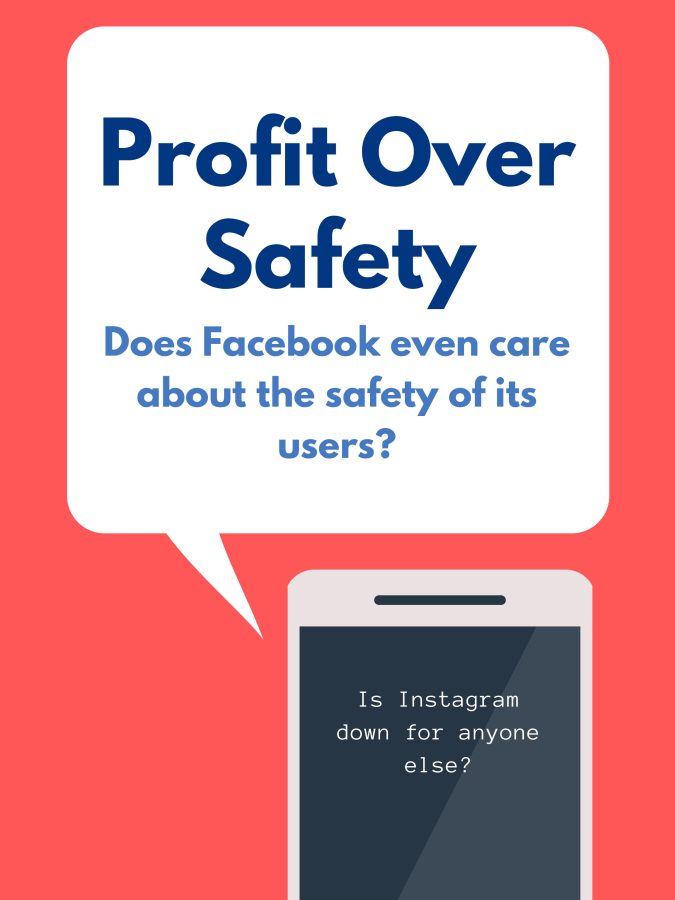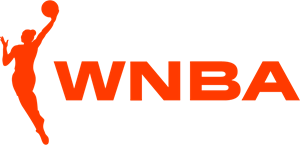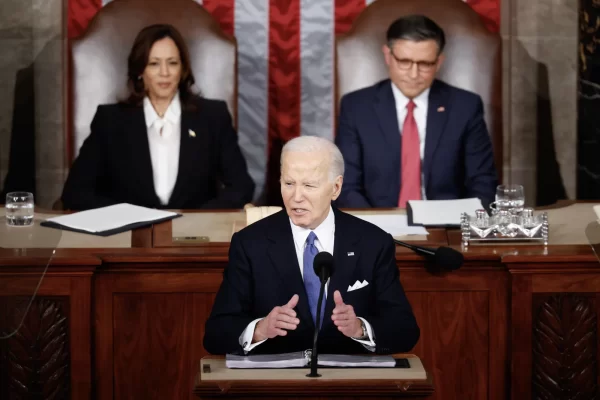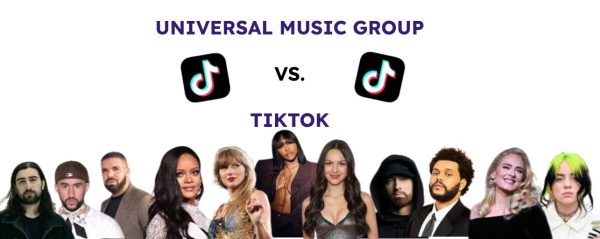Profit Over Safety
Facebook.
One of the biggest social media platforms in the world. As of August 20, 2021, Facebook had close to 2.8 billion active users. This number has likely only grown from there.
Facebook was created in 2004 by Mark Zuckerberg, Eduardo Saverin, Dustin Moskovitz, and Chris Hughes. Its original purpose was to allow Harvard students to connect and share pictures. The site soon spread to other universities such as Yale, Columbia and then eventually to the rest of the world.
While Facebook is extremely popular just by itself, its sibling sites, Instagram and Whatsapp are close to being just as popular with Instagram having 1.2 billion users and Whatsapp 2 billion.
On Monday, October 4, 2021, if you were one of those Facebook-owned users you may have gone on Instagram or Whatsapp to send a message and found that nothing was loading. Perhaps you thought it was a wifi problem, so you open another app to see that it’s working perfectly fine.
For six hours on Monday, Facebook, Instagram, and WhatsApp were inaccessible for both its users and staff. This not only upset users but also businesses. With its outage, Facebook stocks plummeted and the company lost a huge amount of money. According to TechCrunch, “The stock ended the day down nearly 5%, with Facebook shedding tens of billions in market cap value.” This caused many investors to calculate what further and lasting damage could occur with the site financially.
Social media users can also be quick to migrate. With one app down they go straight to the other. With Instagram and Facebook down, many users went to TikTok or Twitter instead. Various TikTok had comment sections filled with comments asking, “Is Instagram down for anyone?” or “Instagram is down so I’m here.” Instagram shutting down for even just a matter of hours can make people go to a different app which caused huge losses for Facebook.
So right now you might be wondering what happened? While many people theorized that it was a hack or that someone was trying to take Facebook down, the real reason for the Facebook outage was because of an update to the Facebook routers that coordinate network traffic. When the update went wrong there were many disruptions sent through the systems and left us with Facebook outages.
These outages were not only for users but also for staff. The outage also applied to Facebook’s internal system which is needed to run daily. This made it even more difficult for employees to solve the problem.
This setback has been one of Facebook’s worst after one incident in 2019 which left the website offline for 24 hours.
This outage also came at a time when Facebook faced a lot of scrutinies over its applications from a whistleblower. Frances Haugen, a former Facebook employee of two years. During her time at Facebook, Haugen said she had seen and observed a disturbing pattern of behavior that she had only seen at Facebook. Before working at Facebook as a product manager, Haugen had also worked at other big companies such as Pinterest, Google, and Yelp.
In September, Haugen decided to share documents with the Wall Street Journal, the Securities and Exchange Commission, and Congress. She said these documents showed how the company made decisions that constantly prioritized money and profit over the safety of its users.
In an appearance on 60 minutes, Haugen said “The thing I saw at Facebook over and over again was there were conflicts of interest between what was good for the public and what was good for Facebook. And Facebook, over and over again, chose to optimize for its own interests, like making more money.”
Whistleblowing is a messy business, typically done by people with ulterior motives, but Haugen has been seen to be an exception. While Lawmakers have applauded Haugen for coming forward, Facebook employees are split on the matter.
Haugen has been displayed as a low-level employee speaking out about things she does not know properly. While the company would not speak on Haugen’s history at Facebook, spokeswoman Lena Pietsch said that Haugen, “worked for the company for less than two years, had no direct reports, never attended a decision-point meeting with C-level executives — and testified more than six times to not working on the subject matter in question.”
According to the New York Times, company officials have also given information to employees on how to respond if they are asked about “the recent events” by friends and family in different memos.
As of October 12, 2021, another former Facebook employee, Sophie Zhang has gone public with her views and criticism of the company. According to Business Insider, Zhang was fired from Facebook in September of 2020. Before leaving “she posted a 7,800-word memo detailing how she believed the company allowed authoritarian regimes around the world to manipulate its platform.”
During her appearance on 60 minutes, Frances Haugen also stated that “when we live in an information environment that is full of angry, hateful, polarizing content it erodes our civic trust, it erodes our faith in each other, it erodes our ability to want to care for each other, the version of Facebook that exists today is tearing out societies apart and causing ethnic violence around the world.”
According to The Guardian, Frances Haugen also told US senators that Facebook intentionally targets teenagers and children under 13. Not only this but the company knows how Instagram can damage teenagers’ mental health and can lead these young people to harmful mindsets. Frances Haugen believes that Facebook and its products are very harmful to children and teenagers.
Facebook and Instagram are two of the biggest social media sites in the world. Facebook has power, and with power comes responsibility. Knowing that the platform willingly rejects the idea of safety for its users sparks a debate over whether the company truly deserves the presence it has.
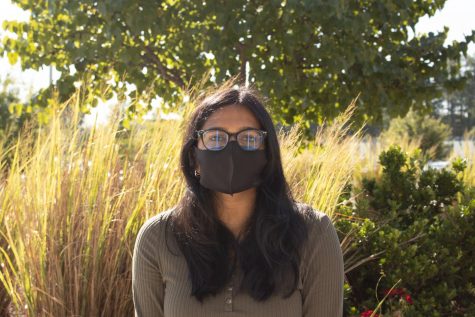
Shloka Sunil is a freshman at Green Level who is excited to write for The Gator’s Eye this year. In her free time she loves to read, watch netflix, and...


